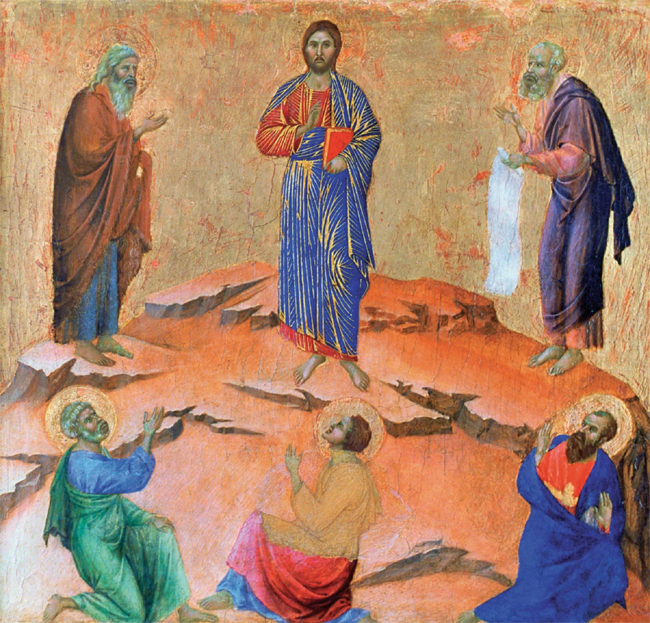Christian Art | The Pharisee And The Publican | Meditations On The Love Of Jesus Christ
Matthew 23: 23-26 – Week 21 Ordinary Time, Tuesday (King James Audio Bible KJV, Spoken Word)
23 Woe unto you, scribes and Pharisees, hypocrites! for ye pay tithe of mint and anise and cummin, and have omitted the weightier matters of the law, judgment, mercy, and faith: these ought ye to have done, and not to leave the other undone.
24 Ye blind guides, which strain at a gnat, and swallow a camel.
25 Woe unto you, scribes and Pharisees, hypocrites! for ye make clean the outside of the cup and of the platter, but within they are full of extortion and excess.
26 Thou blind Pharisee, cleanse first that which is within the cup and platter, that the outside of them may be clean also.
Jesus’ rebuke of the scribes and the Pharisees continues in today’s Gospel verses. Woe unto you – hypocrites. Jesus’ hard condemnation of the scribes and the Pharisees centres upon hypocrisy as upon clerical abuse. These two evils erode life together within the practice of the scribes and the Pharisees.
It is through their hypocrisy that the scribes and Pharisees have corrupted what could have been their true ministry, as they have turned to exploitation of what should have been their flock for financial and prideful ends; and as their concern for their own financial gain and social recognition, as socially important people, has drawn the scribes and the Pharisees away from true exercise of ministry. ‘Woe unto you, scribes and Pharisees, hypocrites!’ This is strong and necessary talk on the part of Jesus. We may hear these words as being entirely relevant in our day.
The charge in today’s Bible verses is twofold, relating to two aspects of the abuses of the scribes and Pharisees. Firstly, Jesus speaks of their pettiness, in terms of paying concern to utterly trivial matters, while the most weighty matters concerning our relationship to God, in the most fundamental ways, have been ignored, undermined or rejected entirely.
Secondly, Jesus speaks of the hollowness of the rituals of purity observed, whereby there is so much attention paid to cleansing the pots and the pans, the outside of the cup, while inside all is extortion and rapacity. There is a shiny, squeaky clean outside, and the heart is evil. These are no small claims.
Jesus’ charge against the Pharisees concerning the swallowing of a gnat is almost comical, as the Pharisees would strain their drinks through a linen cloth so as to avoid inadvertently swallowing that which would render them unclean. Perhaps our sense of the comedy here is a sign of how far we have come with love of Jesus, no matter all our failings.
The core charge Jesus levies, though, is far from comical. It is to do with hypocrisy. It is to do with an outward appearance of purity while inside there is corruption. For the Christian, there is grace to be discovered here. We know to look into ourselves and to confess our sins and to know that God sees through to the heart of us, and there God is ready with open arms, full of mercy, always waiting for each one of us to hear the call to come home – for the lost sheep.
Jesus strips away the outward pretence. Jesus speaks to the scribes and the Pharisees and he speaks to all people for all time, including very much ourselves. What is in our hearts? Where are we, in our hearts, in relation to God’s law? Do we accept God’s forgiveness and God’s love? Are we ready to be as little children and to enter God’s Kingdom?
Concluding Prayer | Love Revealed By Jesus Christ | Christian Prayer
Look with favour on our prayer, Lord,
and in your saving love
let your light penetrate the hidden places of our hearts.
May no sordid desires darken our minds,
renewed and enlightened as we are by your heavenly grace.
We make our prayer through our Lord.

![]()
King James Audio Bible | Daily Bible Verses | Endnotes
What Was Ritual Cleanliness For The Pharisees?
Jesus rebukes the Pharisees for their emphasis on outward appearances and neglect of inner righteousness. In particular, he criticizes their practice of tithing even the smallest herbs, while neglecting justice, mercy, and faithfulness.
To understand the Pharisees’ emphasis on ritual cleanliness, we must first understand their broader worldview. The Pharisees were a Jewish sect that emerged in the Second Temple period (around 200 BC to 70 AD). They were known for their strict adherence to the written Law (the Torah) and their oral tradition (the Talmud), which they believed contained the authoritative interpretation of the Law. They were also known for their belief in the resurrection of the dead, which distinguished them from other Jewish groups of the time.
The Pharisees believed that observance of the Law, including its many ritual purity laws, was essential for maintaining a covenantal relationship with God. They believed that these laws were not only a matter of personal piety but also had national significance, as Israel’s obedience to the Law was crucial for the restoration of God’s kingdom. As such, the Pharisees placed great emphasis on the meticulous observance of these laws, believing that even the smallest transgression could lead to divine judgment.
Ritual purity laws governed many aspects of daily life, including food, childbirth, and bodily emissions. They required that one maintain a state of purity in order to approach God or participate in certain religious activities. The laws were complex and varied, with different levels of purity and impurity, and different rituals for purifying oneself after becoming impure.
The Pharisees believed that the meticulous observance of these laws was a way of expressing their love for God and their desire to live a holy life. However, as Jesus points out in Matthew 23, they had lost sight of the heart of the Law. They had become so focused on the external aspects of observance that they neglected justice, mercy, and faithfulness, which were the weightier matters of the Law.
In subsequent Christian history, religious authorities have had varying opinions on the role of ritual cleanliness. Some have emphasized the importance of maintaining purity in order to approach God, while others have criticized this emphasis as legalistic and Pharisaical.
In the Catholic tradition, the Catechism of the Catholic Church affirms the importance of purity but this is emphasized to be inner purity: ‘The purification of the heart and soul achieved through prayer and the sacraments is the most important means of preparing oneself to encounter God.’ (CCC 2518)
Protestant theologian John Calvin, in his Institutes Of The Christian Religion, criticizes the Pharisees’ emphasis on external observance: ‘They thought that they had a good conscience when they washed cups and platters, but Christ rebukes them because they neglected the more important things of the Law.’ (Institutes, 3.4.32)
The Pharisees’ emphasis on ritual cleanliness was a manifestation of their commitment to the Law and their desire to live a holy life. However, as Jesus points out in Matthew 23, they had lost sight of the heart of the Law, which was to love God and neighbour.








